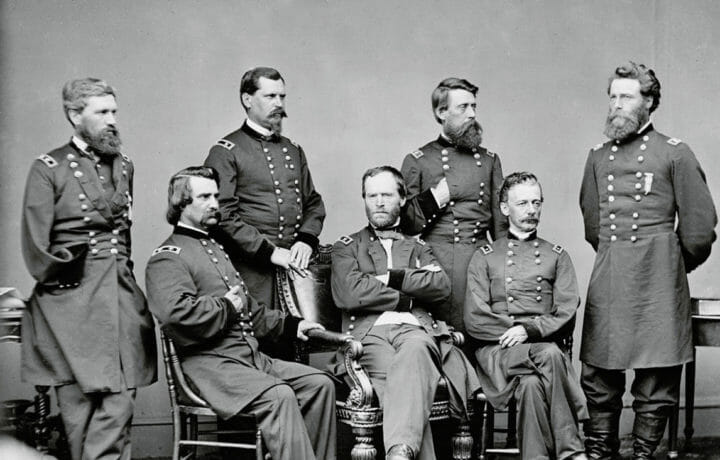It was 1864, and General Sherman was sharing his latest plans for invading Atlanta, cutting across the South, with his trusted friend General Grant. Sherman also decided to send his operational plans to the Southern newspaper reporters that he saw near his camp. Next, Sherman drafted up a detailed accounting of the number of soldiers he had in each regiment, and listed how many were not fit for duty. He sent that report to his friend in the U.S. Senate and asked him to read it aloud in the next week’s session. Finally, General Sherman answered a request for information from a bureaucrat in Washington D.C. that wanted to know how much ammunition and how many days of rations Sherman had on hand for the invasion. That unelected bureaucrat then published that information in public report that contained all the data from all Union Forces units. When that report was published later in the week, a courier carried copies of the reports to each of the Confederate generals across Georgia, Alabama, and South and North Carolina.
Of course, none of this ever happened. General Sherman, General Grant, President Lincoln, the U.S. Senate, and the bureaucrats in Washington D.C. were not suicidal. They knew that keeping even the most mundane information about a military unit away from your enemy is crucial. They knew it was foolish to share operational plans and strategies with their enemy. The leaders in the Civil War had studied history; they knew when and what to share in public, so that they would not provide their enemy an advantage in battle.
Post-September 11 War fighting
As someone who got to prepare generals for congressional testimony and see staff reports sent off in the response to questions from bureaucrats in D.C. like SIGAR—I can tell you Sherman would not approve. Americans in D.C. have forgotten how to fight a war that is heavily dependent on narratives and information. D.C. leaders and bureaucrats constantly asked the military to publicly reveal every bit of information about their tactics, plans, equipment, and units. Even more unbelievably—to share those same details about their allies in the war, especially the Afghan allies. The press was right there beside congress, think tanks, and others trying to dig-up and share every piece of information they could to ensure the American people got access to every detail of the war, or so we were told.
Most Americans outside of D.C. did not care about reading all the details of the war and the units fighting in it. Besides veterans and military families, U.S. citizens often just read about the war when something sensational happened. This fed the press to share the most sensational stories they could find or create. That cycle over 20 years of war in Afghanistan became unbelievably broken.
Information Warfare
Unfortunately for the Afghan people there was a group of folks in South Asia who were very interested in all the details the D.C.-machine and the press were so busy sharing. That group included the Pakistani military and intelligence forces, the Taliban-Haqqani terrorist network, Al Qaeda, IS-K, and dozens of other terrorist groups. Those folks were playing the long-game in the war in Afghanistan. They needed to wear down NATO and other nations supporting the Afghan people, their government, and their military and police. Sharing the bad news and spinning even the good news into media that boosted terrorist morale and demoralized NATO citizens, was like shooting fish in a barrel. Especially when so many then helped the terrorists reshare their spin and misinformation around the globe.
Those terrorists and terrorist-supporters needed to wear-down the Afghan people as well. They needed every bit of negative information they could find about the Islamic Republic of Afghanistan and their security institutions. Armed with a steady flow of negative stories about NATO forces and the ANDSF, the terrorists safely inside Pakistan could sustain a simple yet elegant information operations campaign to undermine the war efforts against them. They didn’t have to spy on Afghans, Americans, or NATO. All they had to do was wait for the press, legislatures, and bureaucrats to publicly dump pages of ammunition in their laps.
If America and other NATO nations cannot even see how poorly they were served by this way of fighting a war in the age of the information, they can count on China, Russia, and all other peer competitors crushing them in any future wars. This failure to understand even the simplest of war-fighting principles by the US and other nations has doomed the Afghan people to another round of misery under the Taliban-Haqqani terrorist regime. The basic principles of war do exist for a reason.


